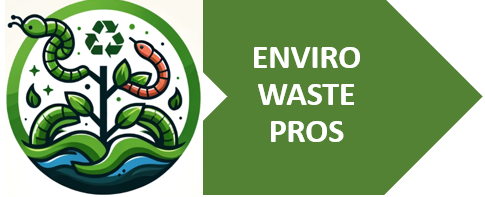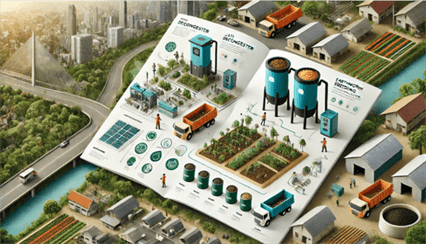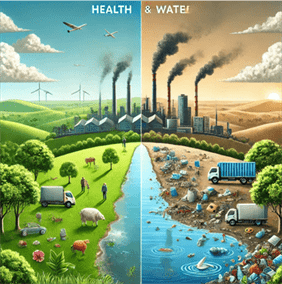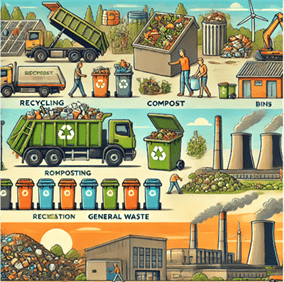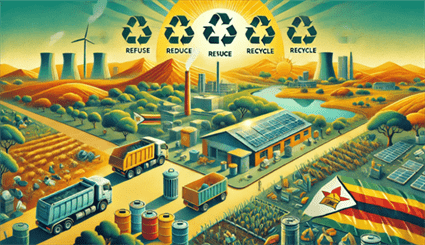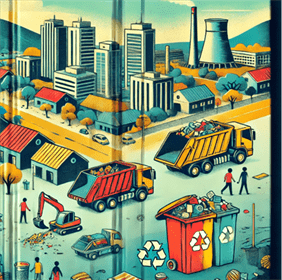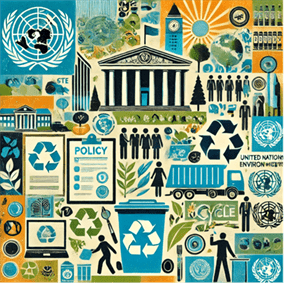Managing Materials and Resources Effectively
1. Introduction
Managing materials and resources effectively is crucial for environmental sustainability and economic efficiency. Proper management reduces waste, conserves resources, and minimizes environmental impacts. This article explores the importance of managing materials and resources, focusing on plastic and paper, food waste management, plastic management, strategies for effective management, and case studies of successful practices.
2. Types of Materials
Plastic
Plastics are synthetic materials made from polymers and are widely used due to their durability, lightweight, and versatility. However, their non-biodegradable nature poses significant environmental challenges. Common types of plastics include high-density polyethylene (HDPE), low-density polyethylene (LDPE), and polyethylene (PE).
Paper
Paper is a versatile material made from cellulose fibers, primarily sourced from wood. While paper is biodegradable and recyclable, its production and disposal have environmental impacts, including deforestation and methane emissions from landfills.
3. Food Waste Management
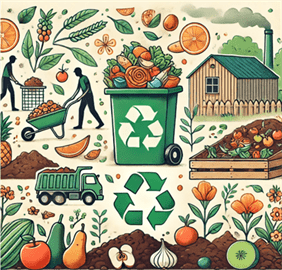
Food Loss and Waste
Food loss refers to the decrease in edible food mass throughout the supply chain, while food waste occurs at the retail and consumption stages. Reducing food loss and waste is essential for food security, economic efficiency, and environmental sustainability.
Managing Leftovers
Proper management of leftovers can significantly reduce food waste. Strategies include:
- Planning and Portion Control: Preparing only the necessary amount of food.
- Storage: Properly storing leftovers to extend their shelf life.
- Repurposing: Using leftovers creatively in new recipes.
4. Plastic Management
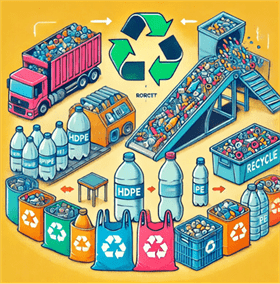
Types of Plastics
- High-Density Polyethylene (HDPE): Used in products like milk jugs, detergent bottles, and piping. HDPE is known for its strength and recyclability.
- Low-Density Polyethylene (LDPE): Used in plastic bags, films, and squeeze bottles. LDPE is flexible and moisture-resistant.
- Polyethylene (PE): A general term for plastics made from ethylene, including both HDPE and LDPE.
Issues with Plastic Shopping Bags
Plastic shopping bags, typically made from LDPE, pose significant environmental challenges due to their widespread use and disposal issues. They contribute to litter, harm wildlife, and take hundreds of years to degrade. Many regions have implemented bans or taxes on plastic bags to mitigate these issues.
5. Strategies for Effective Management
Recycling and Reusing Materials
Recycling and reusing materials are essential strategies for effective resource management. Key approaches include:
- Material Recovery Facilities (MRFs): Facilities that sort and process recyclable materials.
- Upcycling: Converting waste materials into new, higher-value products.
- Product Redesign: Designing products for easier recycling and longer lifespan.
Reducing Waste Generation
Reducing waste at the source is the most effective way to manage resources. Strategies include:
- Sustainable Production Practices: Using eco-friendly materials and processes.
- Consumer Education: Raising awareness about the environmental impact of waste and promoting sustainable consumption.
- Legislation: Implementing policies that encourage waste reduction, such as extended producer responsibility (EPR) and landfill taxes.
6. Case Studies
Successful Management Practices
- San Francisco Zero Waste Program: San Francisco has implemented a comprehensive zero waste program that includes mandatory recycling and composting, extensive public education, and incentives for waste reduction. The city aims to achieve zero waste by 2020 and has already diverted 80% of its waste from landfills.
- Sweden’s Recycling System: Sweden has an advanced recycling system that includes waste-to-energy plants, extensive recycling infrastructure, and strong public participation. The country recycles nearly 50% of its household waste and converts most of the rest into energy.
- South Korea’s Food Waste Recycling: South Korea has a robust food waste recycling program that includes mandatory separation of food waste, advanced composting and biogas facilities, and public education campaigns. The program has significantly reduced food waste and improved resource recovery.
7. Conclusion
Effective management of materials and resources is essential for sustainability and environmental protection. By focusing on recycling, reducing waste generation, and managing food and plastic waste, we can conserve resources and minimize environmental impacts. Successful case studies from around the world demonstrate that with the right strategies and public participation, significant progress can be made. The future outlook for resource management is promising, with ongoing innovations and increasing awareness driving positive change.
Managing materials and resources effectively not only benefits the environment but also supports economic efficiency and social well-being. Continued efforts in education, policy implementation, and technological innovation are essential to achieving sustainable resource management and a cleaner, healthier planet.
